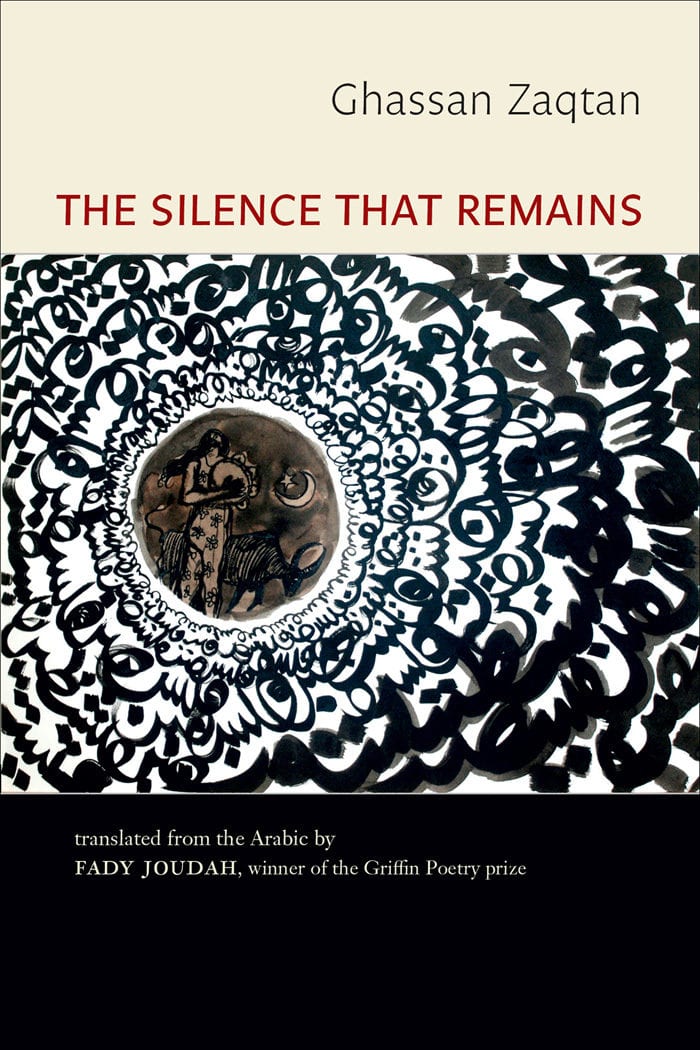
Palestinian poet, novelist, and journalist Ghassan Zaqtan is one of the most consequential writers of our time. His unadorned, cleanly delivered narratives of war and witness are animated by a joyful sensuality—how better to express loss than to illuminate living the dailiness of resistance? Zaqtan’s poems are elegantly translated and introduced by Fady Joudah, a Palestinian-American poet whose insight into Zaqtan’s work is at once intimate and historical. The books from which these poems were drawn are themselves survivors of disposession, occupation, and exile—in some cases only a few copies remain of the original Arabic editions.
When interviewed by PBS for their special on Palestinian poets, Zaqtan said, “I am not the kind of person who will walk in front of the demonstration… I walk behind the demonstration in order to collect the small things that may fall, whether it’s the handkerchief or a child’s backpack or a purse.” This generous volume represents two decades of incandescent creativity.
ISBN: 9781556595141
Format: Paperback
Reviews
“What does poetry do? Nothing and everything, like air, water, soil, like birds, fish, trees, like love, spirit, our daily words… It lives with us, in and outside us, everywhere, all the time, and yet, we are too often oblivious of this gift. It’s a poet’s job to bring this gift out and back, this gift that makes us human again. And Mr. Zaqtan has done it. His poetry awakens the spirits buried deep in the garden, in our hearts, in the past, present and future.” —Judges’ citation, Griffin Poetry Prize
“Zaqtan is not only the most important Palestinian poet alive, but one of the most important poets of our time, embodying in various sophisticated and cosmopolitan forms of expression depths of feeling, complexity, compassion, and witness beyond compare.” —Lawrence Joseph
“[Zaqtan] examines states of being in quotidian life with the patience and care of a jeweler.” —Arts Fuse
“The poet’s trade is exile, and a Palestinian poet’s trade thus a double exile: Ghassan Zaqtan’s work is exemplary in that its lyrical intensity simultaneously hides and foregrounds.” —Nomadic Poetics

